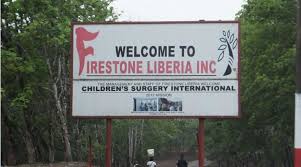The Liberian government, under the direction of President Joseph N. Boakai, has established a high-level working group to engage with Firestone Liberia, a major player in the country’s rubber industry. This initiative underscores the government’s commitment to strengthening the rubber sector, a vital component of Liberia’s economy, while simultaneously addressing the challenges faced by smallholder rubber farmers and the communities they reside in. The working group, chaired by Agriculture Minister Dr. J. Alexander Nuetah and co-chaired by the Minister of Justice, comprises a diverse range of government officials including representatives from the Ministries of Labor, Public Works, State for Presidential Affairs, Finance & Development Planning, the National Investment Commission, and the President’s Economic Advisor. This multi-faceted composition reflects the government’s recognition of the multifaceted nature of the rubber industry and its interconnectedness with various sectors of the Liberian economy.
The primary objective of the working group is to foster constructive dialogue and collaboration with Firestone Liberia’s leadership. This engagement will focus on several key areas crucial to the sustainable development of the rubber sector. A primary focus will be identifying and addressing bottlenecks hindering rubber production, exploring innovative strategies to empower smallholder farmers and bolster local farmer programs, and enhancing communication and cooperation between the government and Firestone Liberia. Furthermore, the working group will address regulatory and logistical concerns related to existing concession agreements, aiming to ensure a fair and equitable framework for all stakeholders involved.
The working group’s formation signifies the Liberian government’s proactive approach to optimizing the rubber sector’s contribution to national development. By bringing together key government officials and engaging directly with Firestone Liberia, the government aims to create a more conducive environment for rubber production, improve the livelihoods of smallholder farmers, and ensure the long-term sustainability of this critical industry. The collaborative nature of this initiative reflects the government’s understanding that a thriving rubber sector requires the active participation and cooperation of all stakeholders.
The government emphasizes its commitment to fostering productive partnerships with private sector entities like Firestone Liberia, recognizing their significant contributions to the country’s economic growth and development. This collaborative approach acknowledges the interdependence between the public and private sectors in achieving sustainable economic progress. The government views Firestone Liberia as a crucial partner in its efforts to revitalize the rubber sector and improve the living conditions of smallholder farmers, who form the backbone of this vital industry.
The working group’s engagement with Firestone Liberia will delve into a range of critical issues impacting the rubber sector. These include exploring strategies to enhance productivity, improve market access for smallholder farmers, address infrastructural challenges hindering rubber production and transportation, and promote sustainable farming practices. The discussions will also focus on ensuring fair pricing mechanisms for rubber, providing access to finance and credit for smallholder farmers, and strengthening farmer cooperatives to enhance their bargaining power. The overall goal is to create a more equitable and sustainable rubber industry that benefits all stakeholders, from the smallholder farmers to the larger corporations.
The Liberian government views the rubber sector as a key driver of economic growth and rural development. By strengthening the sector and empowering smallholder farmers, the government aims to create more employment opportunities, increase household incomes, and reduce poverty in rural communities. The collaboration with Firestone Liberia is seen as a crucial step towards achieving these goals. The government’s commitment to this partnership reflects its broader strategy of promoting inclusive economic growth and ensuring that the benefits of development are shared equitably across all segments of society.


